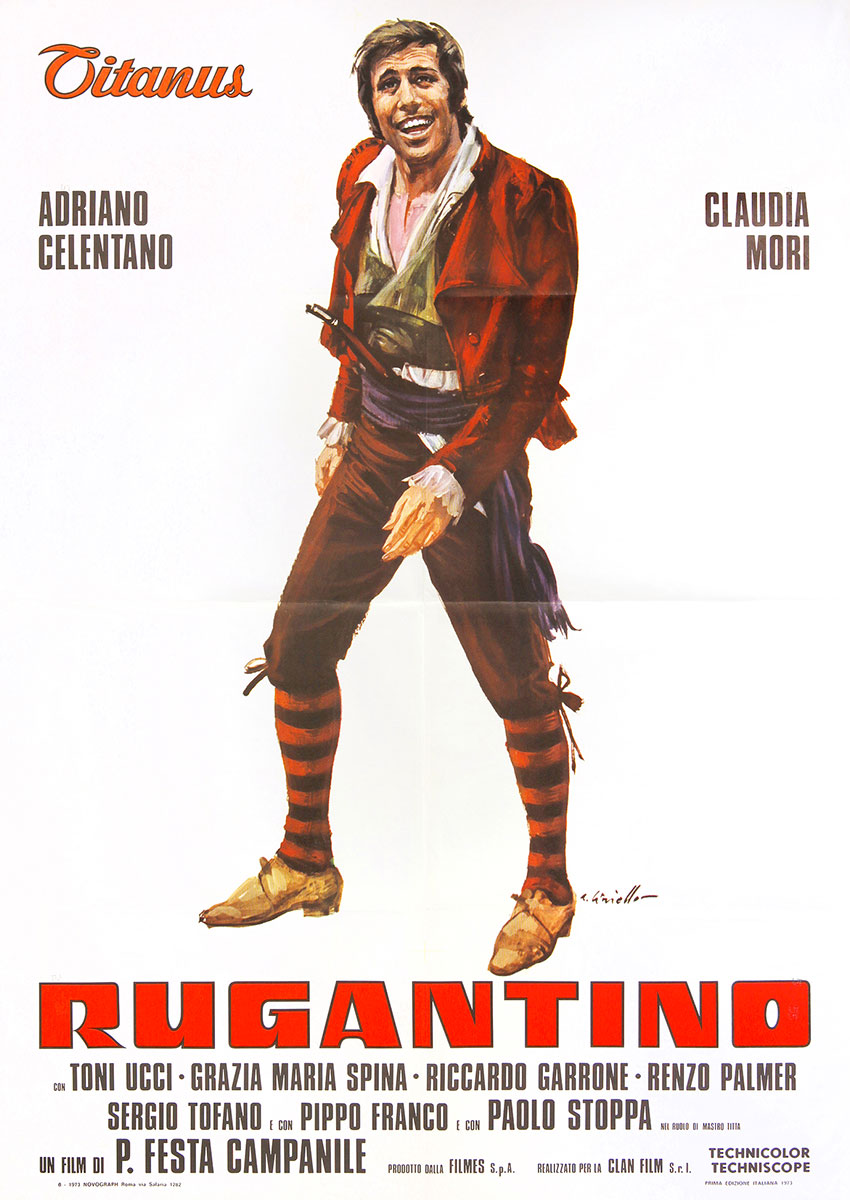Rugantino, the traditional Roman theatrical character, quick with the tongue and with the knife, becomes universal
Adriano Celentano goes wild, singing, dancing and chatting with extraordinary spontaneity
The popular Roman theatrical character of Rugantino, “the tough guy of Trastevere, quick with the tongue and with the knife”, found resounding international success at the beginning of the 1960s with Garinei and Giovannini’s musical comedy which, amongst other things, was sold out for the entirety of its three-week run on Broadway. One of its authors was Pasquale Festa Campanile, who, a decade later, takes charge of adapting the musical for the big screen. For his lead man he chooses Adriano Celentano, who has by now decided to fully launch himself into his cinematic career, for a role characterised by boastfulness and charisma. There is, however, one problem: Celentano has many virtues, but he definitely isn’t a born and bred Roman. Nonetheless, he superbly manages to overcome this obstacle: Celentano goes wild, chatting a lot and moving nervously, unveiling the stunning naturalness of his singing and dancing, giving life to a very lively and entertaining film. The public responds with great enthusiasm, perhaps also because in casting Celentano the character of Rugantino takes on a more universal connotation. Around him, the assorted cast brings its fair share of treats to the party (and to the tragic ending that always feels somewhat strange): Claudia Mori, Paolo Stoppa, Alvaro Vitali, Pippo Franco…
In 19th century Papal Rome, Rugantino is desperately in love with Rosina, who is married to Gnocco. He manages to win her over by taking advantage of the fact that Gnocco is sent into exile. However, it doesn’t take long for the exiled man to be blinded by a jealous rage. He secretly returns to the city, but is killed before he manages to exact his revenge. Rugantino, who is unjustly blamed for the crime, chooses to climb onto the gallows as a demonstration of his love for Rosina and to prove he is a real man, and in so doing gains universal respect.

